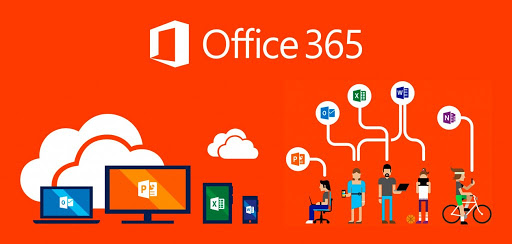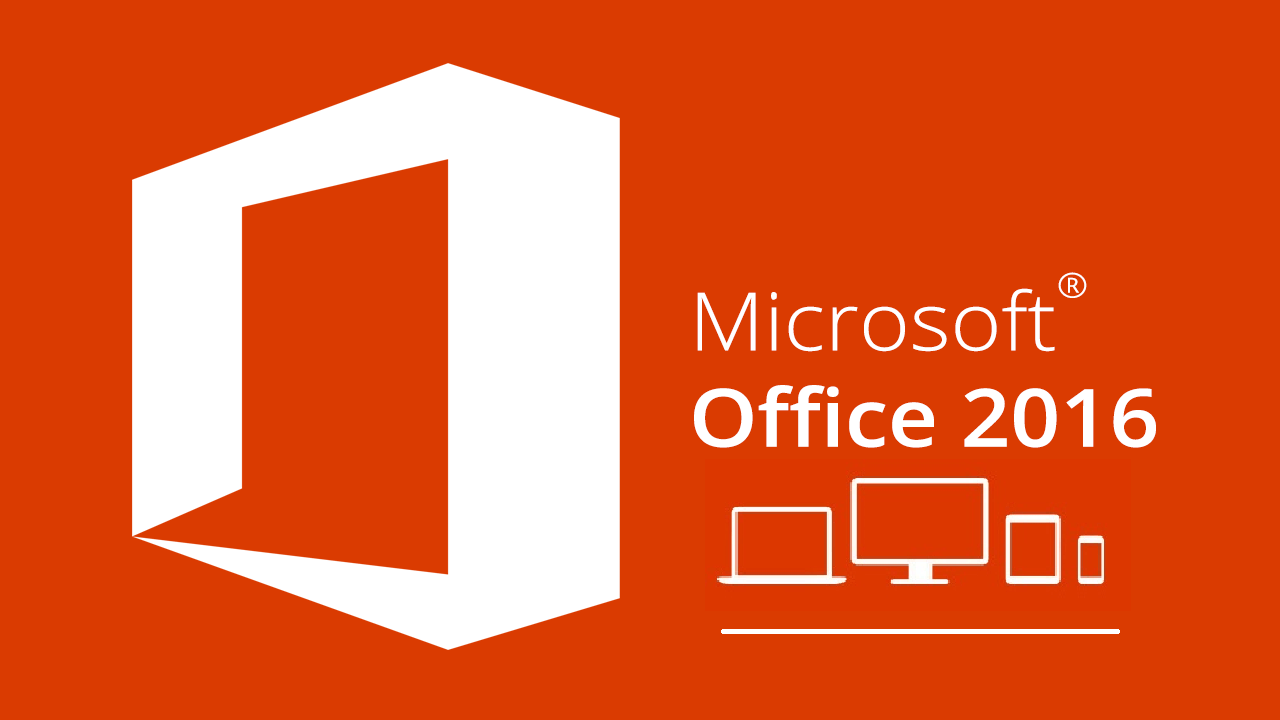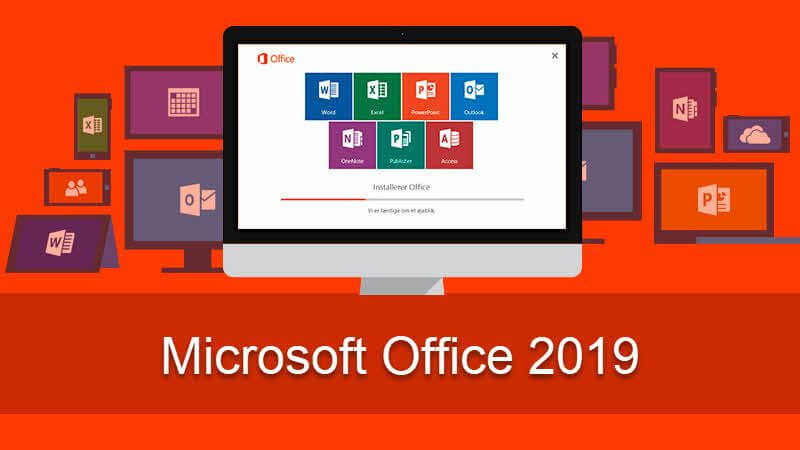What are the major differences between Microsoft Office 2016, 2019 and Office 365?

Maintaining the top position in productivity suites is a top priority for Microsoft. The company reinvents its services with a new Office suite release. Most people would like to understand the differences between Office 2016, 2019, and 365.
Microsoft is always advising clients that cloud services are worth their money. There’s plenty of room for the company to improve in its future upgrades. You can only get the most out of Office 2016, 2019, or 365 after understanding their differences.
Microsoft Office 2016, 2019 and 365: An Overview
Microsoft Office 2019 comes as a one-time purchase for both Macs and PCs. Office 365, on the other hand, comes as a subscription service with the most up-to-date Office apps. Office 2016 serves as the successor to Office 2013 and predecessor of Office 2019.
One disadvantage of using Office 2019 is that it doesn’t have any upgrade options. You’ll have to buy the next major release at full price. Office 365 guarantees regular updates for home, personal, and business use.
While Office 2019 only supports Windows 10, Office 2016 and 365 support various operating systems. They include Windows 7, 8, 8.1, Server 2008 R2, Server 2012, Server 2016, and Server 2012 R2.
Though Office 365 previously targeted enterprise and business users, it now targets home users. Microsoft expanded Office 365 for Office 2016 users who wanted software as a service product. The Office 365 Home Premium plan includes 60 Skype minutes every month of ITB OneDrive storage.
Microsoft Office 365 Introducing Office Users to Subscription-based Plans for Office Apps
Office 365 is a subscription-based line of Office productivity apps unveiled in 2011 by Microsoft. The line constitutes subscription plans that include automatic updates at no additional charge — supported operating systems including Windows, macOS, iOS, and Android.
Microsoft released Office 365 to replace Business Productivity Online Suite. The company also expanded this product to favor consumers following the release of Office 2013. Revenue generated from Office 365 exceeded the one generated from conventional license sales in 2017.
Microsoft Office 365 Plans

The current Microsoft Office 365 plans include Personal, Home, Business Essentials, Business, and Business Premium. Others include ProPlus, Midsize Business, Enterprise, and 21Vianet-operated Office 365. Microsoft licensed Office 365 services to 21Vianet targeting customers from China.
A Personal plan is ideal for non-commercial/home use on one PC/Mac. The Home plan is also suitable for non-commercial use on a maximum of six devices. Other Office 365 subscription plans work well in business and enterprise environments with various needs.
Office 365 Service Being Accessible Through a Single Portal
You can manage and configure all components of Office 365 from an online portal. The portal can allow you to import users from a particular CSV file. You may use PowerShell scripts for more advanced features and setup.
Access to Microsoft’s Server Platforms
Enterprise and business-oriented subscription plans for Office 365 feature hosted services. They give access to platforms such as Office Web Apps, SharePoint, Skype for Business, and Exchange. Users also get online storage space amounting to 1TB.
Clutter Remembering Your Email Preferences
Clutter is an email feature designed to remember your email preferences by analyzing your behavior patterns. For instance, if you keep ignoring emails with the same topic, Clutter will move them to a designated folder. Logging to the Office 365 portal can help you enable or disable Clutter.
Access to Core Office Apps
Most of the Office 365 plans allow access to the most recent versions of office productivity apps. You can use these apps until the period of your Office 365 subscription elapses. Microsoft usually disables editing functionality on the apps once a subscription period ends.
Document editing and creation capabilities are free to Android and iOS users. However, you'll need one of the Office 365 plans to unlock advanced editing features on the mobile apps. In this case, Office Mobile apps are available for tablets and smartphones.
More Collaborative Tools for Office Users
Productivity apps on Office 365 can help cover your collaboration needs at various management levels. The collaboration tools here include Outlook Online, Skype for Business, Microsoft Teams, and OneDrive Business. Your team's preferences, team size, project specifics, and communication needs are crucial in choosing a collaborative tool.
Updates Provided every quarter
Microsoft rolls out updates for its Office 365 service once per quarter. Desktop users get the updates through a streaming system, which allows your PC to download small bits. The updates include bug fixes, improved security measures, and feature improvements.
Office 2016: Microsoft Maintaining its Dominant Position in Productivity Suites

Microsoft Office 2016 came as an update of Office for Mac 2011 and Office 2013. Though it polishes most of its productivity apps, Office 2016 doesn’t feature any new features. You need to check its feature list to determine whether Office 2016 has tools you can use.
You’ll only have two options to access Office 2016 productivity apps. The first option involves subscribing to Office 365, while the second one involves buying the Office suite. A subscription to Office 365 allows you to download your Office 2016 apps through various devices.
One reason you may want to get Office 2016 is to use Office apps on the Cloud. Office 2016 boasts of tight integration with the cloud. You can save and access documents from any device or installation of Office.
Microsoft Office 2016 Editions
Microsoft Office 2016 comes in several editions targeted towards various markets. All editions contain OneNote, PowerPoint, Word, and Excel suited for use on one device. Office 2016 editions for Windows include Home & Student, Home & Business, Standard, Professional, and Professional Plus.
Office 2016 editions for Mac include Home & Student, Home & Business and Standard. The user interface on all editions is the same as the one on Office 2013. Each edition targets various Office users with various needs.
Are Mobile Versions of Office 2016 Apps Worth it?
Office 2016 productivity apps have mobile versions to run on smartphones and tablets. The mobile versions can help you handle a file without the complexity and power of larger apps. Office 2016 mobile apps also run on Android and iOS devices.
Mobile versions of the apps offer flexibility when saving a document to the cloud. The 15GB of online storage that comes with a Microsoft Office 365 subscription is adequate for home use. You can also chat on both IM and skype
Collaborative Working in Microsoft Word 2016
Besides allowing you to save files online, the cloud allows you to co-author a document. When working on a Word, PowerPoint, or Excel document, you can collaborate in real-time. Your team or partner can also view your edits in real-time and reach out to you via IM or Skype.
Attaching Documents Stored on the Cloud to Outlook
The “Share” button on PowerPoint, Excel, and Word 2016 offers simple sharing options. You can invite your team to view and edit your document. Outlook 2016 comes with a tool for generating links to your cloud-based documents.
With Outlook 2016, you won’t have to download a document stored on the cloud. You can insert the document’s link in an email and send it to a recipient of your choice. Outlook will automatically grant viewing or editing permission to the recipient.
Appealing Charts on Excel
Excel 2016 features six new chart types that weren’t present in Office 2013. One of them is the Waterfall chart for displaying vertical bars showing losses and gains. You can also use Sunburst, a chart feature, to draw projections from a set of data.
Office 2016 Themes Having a Variety of Color Options
Microsoft Office 2013 featured a stark white color making it difficult to view. With Office 2016, you have a colorful theme, dark gray theme, and stark white theme as the color options. The colorful theme offers a matching color for an app’s ribbon header and title bar.
Smart Lookup Helping You Learn About a Phrase or a Word in a Document
If you spot a word you are unfamiliar with, Smart Lookup can help you with its meaning. Highlight and right-click the word to launch this feature. You’ll see a pane on the app’s right side with photos and articles from Bing related to the word.
Microsoft Office 2019: Is it Worth the Buzz?

Microsoft Office 2019 is the successor of Office 2016 and the current Microsoft Office version. Office users got to access it for the first time on 24th September 2018. Office 2019 comes with some of the features Microsoft restricted to subscribers of Office 365.
Office 2019 targets Office users who aren't ready to explore the cloud. The product comes bundled with Publisher, Access, Visio, Project, Outlook, PowerPoint, Excel, and Word. You can count on it to create documents at ease and simplify your work.
Microsoft Office 2019 Editions
Office 2019 is available as Office Home & Business 2019 or Office Home & Student 2019. Office Home & Business gives access to OneNote, Excel, Word, Outlook, and PowerPoint. The Home & Student one comes bundled with Word, PowerPoint, and Excel.
Your device must be running on the three most recent macOS versions or Windows 10 to support Office 2019. If you’re still on Windows 7 or 8.1, you may consider upgrading Windows 10 to use this product. You may also opt for the Office 365 subscription.
Microsoft Office 2019 Boasting of New Features
Most of the features included availed through Office 365 are available on Office 2019. Office 2019 also features LaTex support for Word and improved inking capabilities. PowerPoint 2019 boasts of Morph and Zoom while Excel 2019 features new formulas and charts.
Though Office 2019 doesn't come with OneNote, you can install OneNote 2016. Microsoft Office 2019 Mac users get Focus Mode on Word and 2D maps on Excel. They also get powerful PowerPoint features, including 4K video exports, SVG support, and Morph transitions.
Word 2019 Helping You Focus Better on Documents
Microsoft claims that Office 2019 can help you focus better when editing a document in Word. The company backed up this claim by introducing Focus mode. With Focus Mode, you can minimize the items displayed on the user interface and darken the screen.
Word 2019 also boasts of new learning tools, including translator and text spacing features. The Office productivity app can also allow you to convert text to speech. Mac users can enjoy customizable drop-down menus on their Word 2019 for Mac.
Outlook 2019 Getting “Focused Inbox” Feature
Just like Word 2019, Outlook 2019 features a new focus mode known as Focused Inbox. You can rely on this feature to streamline email drafting and workflow. Outlook 2019 also bears the “@” command used to tag people in your contact cards and emails.
Mac users get new email templates while PC users get to travel and delivery cards from Office 2019. There’s also a Send Later function, which helps schedule read receipts and delivery times on Mac. Microsoft included an Office 365 Group integration on Office 2019 for both PC and Mac.
Better Support for the Digital Pencil
Microsoft added the roaming pencil case support to apply to all Office 2019 productivity apps. The pencil case allows you to write with your hand and use the pencil to move part of the documents. There’s also improved support for tilt recognition and pressure sensitivity when using the digital pencil.
Frequently Asked Questions About Office 2016, 2019 and 365
As a current or prospective Office user, learning the basics of the Office suites is crucial to your interaction with the software. There are several myths regarding Office 2016, Office 2019, and Office 365. The following frequently asked questions, and their responses help dispel these myths.
How to buy genuine Windows Keys
Microsoft advises users not to use unlicensed products because they're not only harmful to your computer but also dangerous to your data. This is why you should get genuine Microsoft Office and Windows Keys.
Basically, genuine Windows or genuine Office producsts are those published by Microsoft, properly licensed with genuine activation keys, and supported by Microsoft or a trusted partner such as SoftwareKeep.
SoftwareKeep is a trusted and certified Microsoft partner. We're a trusted Microsoft certified gold partner who sells only 100% genuine Microsoft software.
You'll need a genuine version of Windows to access the optional updates and downloads that help you get the most from your PC.
How do you know if you're running genuine Microsoft software? Look for key features of genuine Windows or Office software, such as the Certificate of Authenticity (COA), proof of license label, and an edge-to-edge hologram. Your safest option is always to buy Windows from a trusted Microsoft partner.
Can You Run Multiple Office Versions on the Same Device?
Though you can run several versions of Office on one computer, various limitations and rules apply. For example, you need to first install the older Office version and then install the new one. All Office versions must either be 32 bit or 64 bit to avoid running into errors and bugs.
You can’t install Office simultaneously in both 64 bit and 32 bit. However, you can set up a virtual machine to accommodate the other Office installation. The virtual machine may run slow, and you may need another license for the Office suite installed in it.
Is it Costly to Upgrade from Office 2016 to the Recent Office 2019?
While you may want to upgrade the Office suite to a newer version, the cost is high. Furthermore, your device must be running on Windows 10 1809 or LTSC 2019 or higher. Considering these costs before upgrading the software is crucial when you want to buy Office 2019.
Does Office 2016 and Office 2019 Have the Same User Interface?
At first glance, you may notice that Office 2019 resembles Office 2016. However, the new features added to Office 2019 make it more aesthetically appealing to Office 2016. For instance, Focus mode on Word 2019 lets you make the screen darker and reduce the user interface elements.
One of the differences between Office 2016 and Office 2019 is the licensing agreement. When you buy Office 2019, you’ll get a more limiting licensing agreement. Office 2016 comes in various editions, which allow you to enjoy the software package depending on your needs.
Which One is the Best? Office 2016, 2019 or 365?
One of the main concerns Office users had was whether Office 2019 would replace Office 365. In an official post announcing Office 2019’s release, Microsoft dispelled the claims. The company mentioned that Microsoft Office 2019 comes as a standalone package.
Office 2019 targets private businesses and users who lack Internet access needed to use Office 365. Most of the features included in the apps that come with an Office 365 subscription are not present in Office 2019 apps. The excluded features particularly feature collaborative and cloud-based functionality.
While addressing the concerns regarding Office 2019 and Office 365, let’s not forget Office 2016. Though Office 2019 is the most recent perpetual Office release, Office 2016 still has a dedicated user base. Most Office 2016 users love it for its diverse editions.
Businesses and individuals may consider upgrading to Office 2019 to Office 2016. If you’re one of them, you should only upgrade if the new features on Office 2019 work well for you. Upgrading to Office 2019 may also be a better choice if you need better integration with the Office apps.
If you’re using older versions such as Office 2010 or 2013, upgrade to newer versions for their interesting features. A subscription to Office 365 may be better if you’re looking for more features and better support. The starting fees for the subscription are also cheaper when compared to the price of a standalone package.
Final Thoughts
Microsoft Office 2019 appears to offer great marginal improvements over Office 2016. On the other hand, Office 365 exists as a subscription package targeting savvy Office users. If you can't stand the standalone Office 2019, Office 365 may be an ideal option for you.
Microsoft’s goal is to have Office users access Office productivity apps in packages they enjoy. Office 2016 seems to target those who want to run Office apps with minimum system requirements. All in all, the choice lies in your hands as an Office user.
One more thing
If you’re looking for a software company you can trust for its integrity and honest business practices, look no further than SoftwareKeep. We are a Microsoft Certified golf Partner and a BBB Accredited Business. Sign up for our newsletter to receive our product updates, news, articles, and offers that we have for you. Our Help center also has tips, tricks, reviews, and troubleshooting that can help you in the day-to-day running of your work and productivity.












